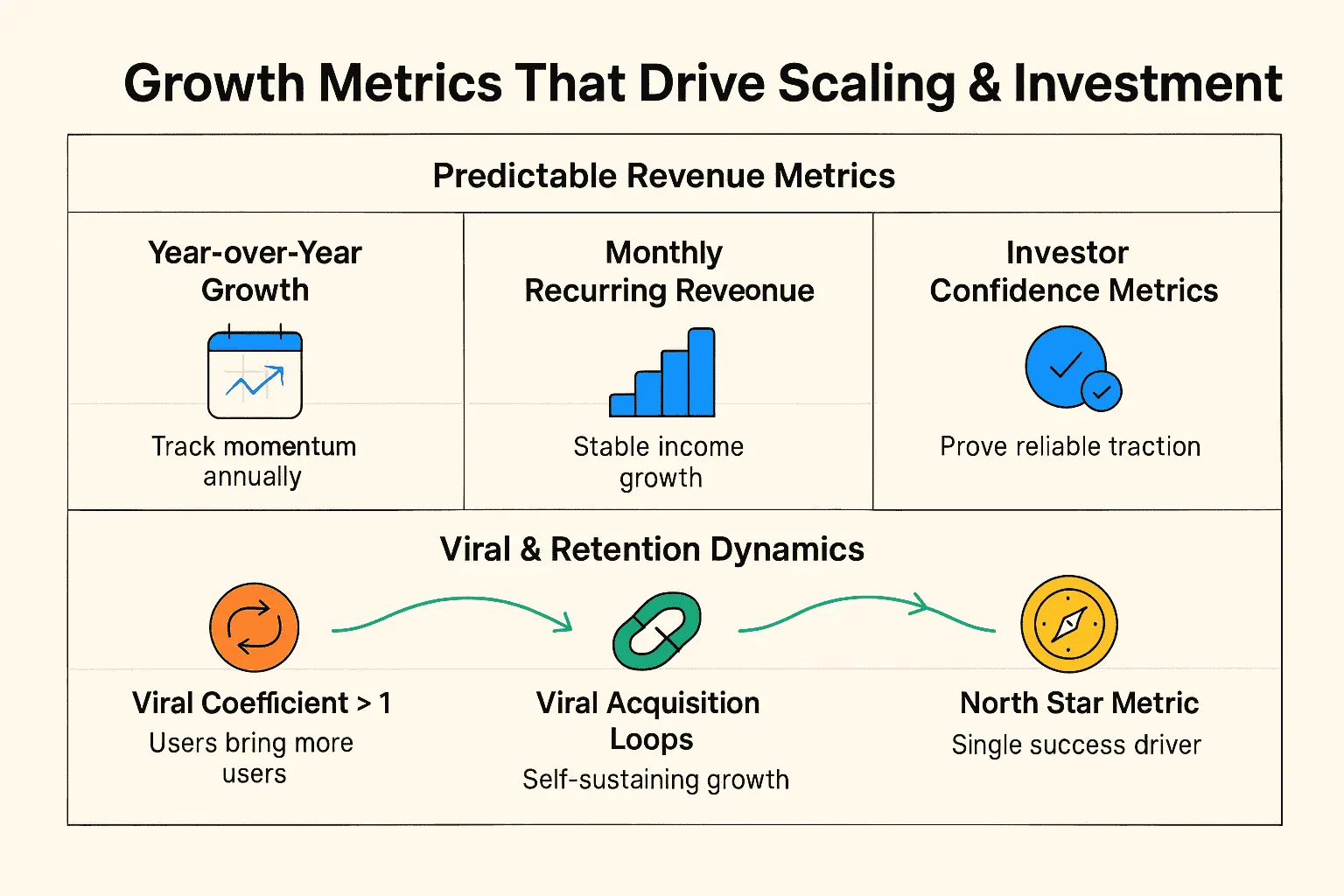Equity crowdfunding has emerged as a transformative way for startups to secure funding while engaging directly with investors. By offering shares in exchange for capital, startups can tap into a broader audience beyond traditional venture capital routes.
Global market momentum is accelerating. Global crowdfunding is projected to grow from US$ 1.45 billion in 2024 to US$ 5.43 billion by 2033 at a compound annual growth rate of 15.82%. This growth signals a broadening of opportunities for startups and investors, reinforcing the relevance of understanding equity crowdfunding strategies now.
The approach, often conducted through online equity rounds, allows businesses to showcase their potential to a diverse pool of contributors. This guide helps founders plan, launch, and manage an equity crowdfunding round without wasting time or leaving money behind.
Equity Crowdfunding: What Startups Need to Know
Equity crowdfunding enables startups to raise money online by selling ownership shares directly to a broad base of investors. It's accessible, regulated, and offers both advantages and risks to founders and backers. Equity crowdfunding has transformed the way startups secure funding, offering a unique opportunity for businesses to raise capital by exchanging equity for investments. Through online platforms, startups can connect with a diverse pool of investors, democratizing access to funding and fostering innovation.
How Equity Crowdfunding Works
At its core, equity crowdfunding allows startups to sell securities, financial instruments like shares or convertible notes, to investors.
Unlike traditional funding methods, which often rely on venture capitalists or angel investors, this approach opens the door to everyday individuals. They can support emerging businesses directly.
Benefits of Equity Crowdfunding
Equity crowdfunding offers several advantages for startups and investors alike:
- Easier Access to Capital: Startups can bypass the complexities of traditional fundraising and reach a wider audience of potential backers.
- Distributed Ownership: By spreading ownership across multiple investors, founders can reduce managerial pressure and maintain operational control.
- Potential High Returns: Investors may benefit significantly if the startup succeeds, making this an attractive option for those willing to take calculated risks.
Recent capital raising provides measurable proof of momentum. In 2024, companies utilizing Reg CF raised a total of $343.6 million, though this represented an 18% decrease from 2023 levels. For founders, these numbers demonstrate both the broad accessibility and sensitivity to market shifts inherent in the equity crowdfunding landscape.
- Select platform
- Draft campaign profile
- Prepare SEC forms
- Promote
- Engage investors
- Manage cap table
Understanding how equity crowdfunding fits within the broader spectrum of startup fundraising strategies can provide valuable insights into its unique advantages and challenges.
How Equity Crowdfunding Stacks Up Against Other Funding Options
Equity crowdfunding has emerged as a transformative funding model, offering unique advantages over traditional methods like venture capital and angel investing. Unlike these conventional approaches, equity crowdfunding allows non-accredited investors to participate, making it more inclusive and accessible. This shift democratizes startup funding, enabling a broader range of individuals to invest in early-stage companies.

Traditional fundraising methods, such as venture capital, often rely on a small pool of accredited investors and institutional backers. While these methods can provide substantial funding, they may also come with limitations, including investor bias. For instance, some venture capitalists view equity crowdfunding with skepticism, which could complicate follow-on funding rounds. Despite this, equity crowdfunding’s ability to diversify the investor base often outweighs these concerns, providing startups with a more resilient financial foundation.
The Role of Diversification in Equity Crowdfunding
Recent data underscores crowdfunding's role in funding mature ventures. In 2024, capital raised through investment crowdfunding reached $547 million, with 71.2% of commitments going to post-revenue issuers. This trend shows how crowdfunding increasingly supports companies with validated business models.
Building on the broader investor base, equity crowdfunding enables individuals to diversify their investments across multiple startups and sectors. This approach reduces the impact of any single company's failure, spreading risk more effectively than traditional concentrated investments. Diversification is especially valuable given the high-risk nature of early-stage ventures. By allocating smaller amounts to various opportunities, investors can pursue potential returns while managing downside exposure.
Equity crowdfunding also stands apart from other crowdfunding models like reward-based or donation-based campaigns. While reward-based crowdfunding focuses on pre-selling products or offering perks, and donation-based campaigns rely on altruism, equity crowdfunding offers tangible ownership stakes in the company. This equity-based approach aligns investor interests with the long-term success of the business, fostering deeper engagement and commitment.
For startups exploring funding strategies, equity crowdfunding represents a compelling alternative. The overview of startup funding options offers a contextual backdrop that places online equity rounds among a spectrum of financing methods. By embracing this model, businesses can tap into a diverse pool of investors, ensuring greater inclusivity and financial flexibility.
How Equity Crowdfunding Works in the Digital Space
Equity crowdfunding has transformed how startups raise capital, enabling them to connect with a diverse pool of investors online. This process involves creating a compelling campaign on specialized platforms, preparing essential disclosures, and actively engaging with potential backers.
Step 1: Choose the Right Crowdfunding Platform
The first step for startups is selecting a platform that aligns with their goals. Popular options include Republic, NetCapital, StartEngine, and WeFunder. Each platform offers unique features tailored to equity crowdfunding, such as regulatory compliance tools and investor outreach capabilities.
For example, Republic provides startups with a streamlined process for setting up campaigns, while NetCapital focuses on connecting businesses with a broad investor base. StartEngine and WeFunder also offer robust services to help startups raise funds efficiently.
Legal requirements are central when choosing platforms. For the 2025 fiscal year, the maximum offering size under Regulation Crowdfunding is $5 million over a 12-month period. Understanding these constraints ensures that startups plan campaigns within SEC guidelines and optimize their fundraising approach.
Step 2: Build a Persuasive Campaign Profile
A well-crafted campaign profile is essential to attract investors. Startups must present their vision, business model, and growth potential clearly and convincingly. This includes:
- Pitch Materials: Create engaging videos, infographics, and written content that highlight the startup’s mission and market opportunity.
- Financial Information: Provide transparent financial data, including revenue projections and funding goals.
- Team Introduction: Showcase the expertise and credibility of the founding team to build trust.
Platforms like Republic and StartEngine offer guidance on crafting these materials, ensuring startups can effectively communicate their value proposition.
Due Diligence Checklist for Equity Crowdfunding Investors
- Review the startup’s pitch deck and business plan to assess vision, market opportunity, and growth strategy alignment.
- Analyze financial statements and projections for realistic revenue, cost assumptions, and potential for sustainable profitability.
- Check for lead investor participation or endorsements, which can signal credibility and additional scrutiny of the opportunity.
- Understand the terms of the offering, including valuation, share type, and investor rights before committing funds.
- Research the founding team’s experience and track record to gauge their ability to execute the business plan effectively.
Step 3: Prepare SEC Disclosures
Equity crowdfunding requires compliance with regulations set by the U.S. Securities and Exchange Commission (SEC). Startups must file necessary disclosures, such as Form C, which outlines financial statements and risk factors.
Platforms like NetCapital simplify this process by offering tools and resources to help startups meet regulatory requirements. This ensures campaigns are legally compliant and ready to launch.
Step 4: Launch and Promote the Campaign
Once the profile and disclosures are complete, startups can launch their campaign. Promotion is key to reaching a wide audience, and strategies include:
- Social Media Marketing: Share updates and milestones across platforms like LinkedIn, Twitter, and Instagram.
- Email Outreach: Engage existing networks and potential investors through targeted email campaigns.
- Platform Tools: Utilize promotional features offered by platforms like WeFunder to boost visibility.
Step 5: Engage with Investors
Active communication is crucial throughout the campaign. Startups should respond to investor inquiries, provide regular updates, and build relationships with backers. This fosters trust and encourages more people to invest.
Cross-border engagement has become increasingly important in digital equity crowdfunding. As of 2024, cross-border activity now accounts for 17% of all crowdfunding investments in the EU. This shift demonstrates how digital platforms enable startups to reach investors beyond their home country and diversify campaign backers.
Step 6: Close the Campaign and Manage Investor Relations
After the campaign ends, startups must finalize investments and maintain ongoing communication with their new shareholders. Platforms like StartEngine and Republic provide tools for managing investor relations, ensuring transparency and accountability.
Equity crowdfunding in the digital space offers startups an innovative way to raise capital while building a community of supporters. By following these steps, businesses can maximize their chances of success in online equity rounds.
Weighing the Pros and Cons of Equity Crowdfunding
Equity crowdfunding presents startups with both opportunities and challenges that require careful evaluation.
Advantages of Equity Crowdfunding
Equity crowdfunding allows founders to retain control over their business while avoiding the burden of debt repayment. Unlike traditional loans, this method doesn’t require monthly payments, freeing up cash flow for operational needs. Additionally, it provides access to a broad pool of investors who may also become brand advocates, helping to amplify visibility and credibility.
Other benefits include:
- Retention of Founder Control: Founders can secure funding without relinquishing significant decision-making authority.
- No Debt Obligations: Startups avoid the financial strain of repaying loans, which can be particularly advantageous during early growth stages.
- Community Engagement: Investors often become loyal supporters, fostering a sense of community around the business.
Drawbacks of Equity Crowdfunding
Founders should consider campaign risks alongside potential benefits. By late 2025, 35 companies that raised money through Reg CF had shut down, while 19 achieved successful exits. These statistics highlight the mixed outcomes possible and underscore the importance of due diligence and investor relations post-campaign.
Despite its advantages, equity crowdfunding carries risks that startups must address. One major drawback is equity dilution, where founders give up a portion of ownership to multiple investors. This can complicate decision-making and reduce long-term returns. Additionally, securities issued through crowdfunding are often illiquid, meaning investors may struggle to sell their shares.
Challenges include:
- Equity Dilution: Sharing ownership with numerous investors can dilute the founder’s stake.
- Illiquidity: Crowdfunded securities typically lack a secondary market, limiting investors’ ability to cash out.
- Follow-On Funding Difficulties: Securing additional rounds of investment may become challenging due to fragmented ownership structures.
Both startups and investors must weigh fundraising challenges and solutions carefully before proceeding.
Illiquidity and Return Timelines in Equity Crowdfunding
Beyond general risks, equity crowdfunding investments are typically illiquid, meaning shares cannot be easily sold or traded. Investors should anticipate holding their equity for several years, often waiting for a company exit or secondary market opportunity. This long return horizon requires patience and careful financial planning. Recognizing this limitation helps set realistic expectations for potential outcomes.
For instance, rule changes or platform insolvency could impact investor protections—founders should monitor regulatory updates closely.
How Qubit Helps You Manage Equity Crowdfunding
Startups often struggle with messy ownership records after equity crowdfunding. Qubit automates cap table (ownership record) updates and improves transparency. A well-structured cap table isn’t just admin, it’s a credibility signal. When investors see a clear breakdown of ownership, they’re far more likely to trust your financial structure and back your growth.
Examining ways to secure capital for startup provides a comparative perspective on funding rounds, illustrating how methods across various stages resonate with online equity strategies. Qubit ensures that this piece fits neatly into broader funding strategies, making it a must-have tool for startups that want to scale without tripping over their own paperwork.
Conclusion
Equity crowdfunding has become a serious funding channel, not a side experiment. It lets you raise capital, build a community of supporters, and keep debt off your balance sheet, but it comes with real trade offs around dilution, compliance, and long timelines to liquidity. Treat it like any other round, not a marketing stunt.
If you want to use equity crowdfunding as part of a larger capital strategy, you need tight positioning, clean documents, and a clear post round plan for investor updates and cap table hygiene. That mix is what separates campaigns that quietly close from those that drag on and damage momentum.
If you are planning an online equity round and want structured support across messaging, platform selection, and investor follow up, our fundraising assistance service at Qubit Capital can help you design and execute a campaign that fits your broader fundraising roadmap, not fights it.
Key Takeaways
• Equity crowdfunding for startups enables raising capital without incurring debt.
• It opens funding to both accredited and non-accredited investors.
• Regulatory frameworks like SEC Reg CF and the JOBS Act protect the process.
• Understanding the benefits and risks is essential for campaign success.
• Using dedicated platforms and effective cap table management streamlines fundraising.
Frequently asked Questions
What are the risks of equity crowdfunding for startups?
Equity crowdfunding carries risks such as ownership dilution, regulatory compliance, and potential management challenges. Startups must evaluate these risks before fundraising.






